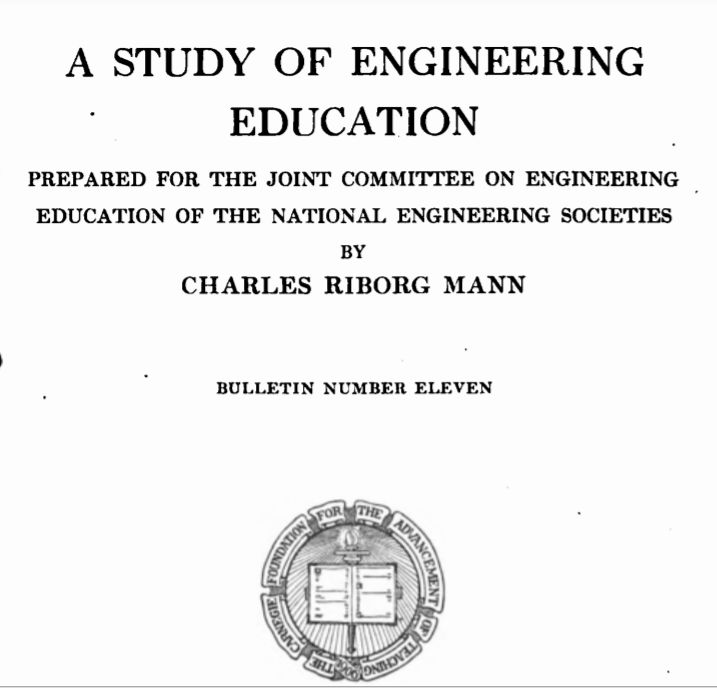by Ryan H. Law
What does an engineering report written more than 100 years ago have to do with financial planning, counseling, and coaching?
More than you might imagine.
Here’s a bit of background.
In 1918 The Carnegie Foundation funded research for a report titled “A Study of Engineering Education1.” The report discusses the history of engineering, school curriculum, types of instruction, testing, and grading. The report also discusses changes that should be made in the education of engineers.

As part of the report a survey was done of more than 8,500 engineers asking them to rank the “most important factors in determining probable success or failure in engineering.” The survey included some of the following qualities for engineers:
- Character
- Resourcefulness
- Judgment
- Efficiency
- Understanding people
- Technique
Engineering is a highly technical field, so one might think that technique or efficiency, or in other words, technical knowledge, would rank highest.
However, 94.5% of respondents listed character as the most important quality, while technique was ranked last by about the same majority.
The author of the report concludes that interpersonal, or soft skills, account for about 85% of success, while technical knowledge accounts for just 15%.

One of the recommendations in the report is that more engineering schools need to teach interpersonal skills.
If the 85/15 ratio is true in engineering, I think it is safe to conclude that it is true in personal financial planning, counseling, and coaching as well.
However, what does most of our training and knowledge focus on? Asset allocation, estate planning, time value of money, retirement accounts, education planning, etc.
In fact, if you look at the 72 CFP® topics2 exactly two of them (client and planner attitudes, values, biases and behavioral finance, and principles of communication and counseling), cover the soft skills.
That’s less than 3% of the topics.
I want to be clear here that I am not saying that technical knowledge is not important.
You have to be an expert at the technical aspects, and that is mainly what the CFP® exam is testing.
Soft skills are also much harder to test on than the technical knowledge.
There are other designations, which we will be talking more about in the future, such as the Accredited Financial Counselor (AFC®) and the Certified Financial Therapist (CFT®) and others that focus more on some of the soft skills.
We will dig deeper into these essential soft skills over the next few articles.
ACTION STEPS:
- Make a list of the “soft skills” you feel are the most important for financial professionals to develop. Share in the comments below or on this post on LinkedIn.
- Make a list of what soft skills you feel you are the best at, and which ones could you focus on improving.

References and resources:
(1) You can find the full Engineering report on the Internet Archive website.
(2) CFP Board list of topics
Listening image licensed by Ingram Image – Stock Photo Secrets (AFF)


Leave a Reply